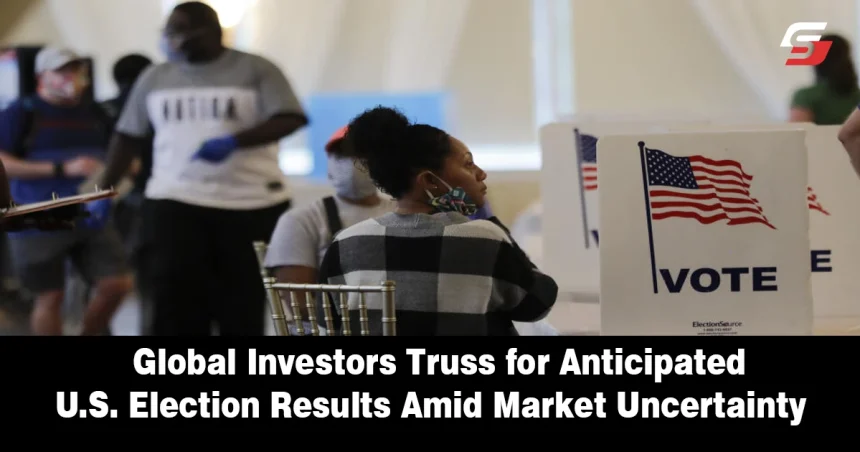Global markets caliper as U.S. election results unfolds, potentially impacting tax, trade, and financial stability, with significant implications across multiple industries.
Capping a high-stakes U.S. election cycle that has already influenced stocks, bonds, and other assets, global markets braced as Americans voted on Tuesday. As results unfold, the outcome could be more influential for global financial markets.
Significantly different insinuations for tax policies, trade agreements, and U.S. institutions are carried by this unique election depending on if Republican Donald Trump or Democrat Kamala Harris wins. The dollar’s strength, and various industries central to Corporate America, either result can affect U.S. debt forecasts.
With polls signaling a deadlock between Trump and Harris, the race is expected to be tight. Potentially adding to market volatility, investors fear that a contested or unclear result could prolong uncertainty. Investors will closely monitor key bellwether counties as vote counts roll in Tuesday evening. Crucial battleground states may not reveal substantial results until later in the night, however.
Mike Mullaney, director of global markets research at Boston Partners, pondering upon over 40 years in investment management said that it could be the most significant election he would have seen in his career. Moreover, he added that the market would see diverging impacts depending on who wins.”
A rally propelled the S&P 500 to record highs in 2024, with a year-to-date rise of around 20% fueled by a strong economy, robust corporate profits, and Federal Reserve rate cuts leading up to the election. Enhanced support for clean energy, and potentially higher taxes for corporations and high-income individuals, a Harris victory would likely inculcate tighter regulations. These initiatives, however, could face significant opposition without Democratic control of Congress.
If Harris wins and Democrats overpowers both the House and Senate, most investors doubt the possibility of a “Blue Wave,”. Impeding major fiscal initiatives, analysts at Capital Economics suggest a Harris victory would likely leave her confronting a Republican-led Senate.
Stocks perform well by the year’s end after elections, irrespective of party outcomes, historically, as markets gain clarity. If a protracted recount led to a 5% drop in the S&P 500, amid technology stock concerns and broader economic unease, some fear the election could be too close to call, however, heightening market uncertainty. Investors remember the 2000 election, this year, the Cboe Volatility Index has risen, reflecting growing investor caution around the election and geopolitical tensions.


